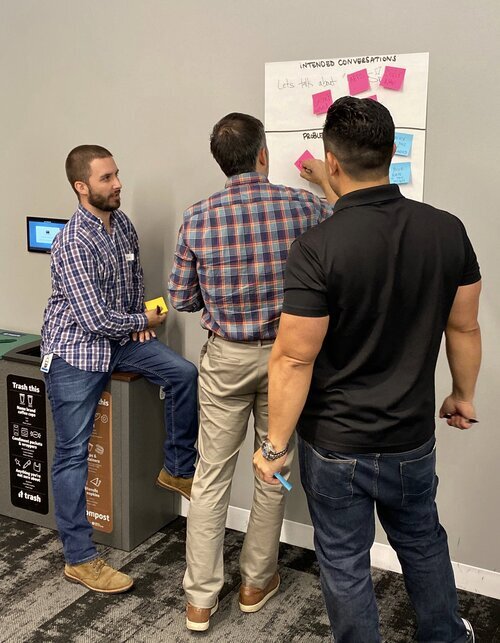Research
Understand business goals
The first step in any project should be to understand your business / team / product goals. Any research conducted or designs iterated should reflect these business goals. My job in User Experience is to marry two groups - the business and the user.
It’s important to also understand the space. Who are competitors? What direction is their business going in? What’s in the news about this lately? This research helps contextualize and set the scene for future work.
Example methods & Tools
Stakeholder Interviews
SME Interviews
Five Whys
Analogous Research
Competitive Research
Prioritization
Card Sorting
Google Analytics
Understand the people
Once I know the business problem and the goal, it’s time to understand the people. If the team doesn’t understand user needs, we could build a product that has no market. I identify user motivations, hesitations, and goals.
Sometimes I don’t have direct access to customers. That doesn’t mean I can’t understand users or customers. I’ll still research! This is normally where guerrilla efforts come in. I join Facebook groups, talk to strangers, call stores, read news, etc.
Example methods & Tools
Contextual Inquiry
Interviews & Focus Groups
Surveys
Guided Tours
Persona Creation
Journey Map
Diary Studies
Create the solution
At this point, my team and I have a good direction towards a solution. It’s very important to keep the team updated on any research findings so we can start solutioning from the same point.
When I pair business goals with user needs, creating solutions can get a bit tricky. It’s important to stay in low fidelity as long as possible so the team doesn’t get married to a design too quickly.
Example methods & Tools
How Might We?
Service Blueprint
Ideation
Usability Research
Card Sorting
Prototypes & Wireframes
LEGO Serious Play
Value Proposition Map
Evaluate & repeat
Launch doesn’t mean research is over. I monitor metrics - checking each project (at least) weekly.
If Google Optimize is available, I try to get an A/B test started at product launch. Every day is a new opportunity to learn something new about your business or users!
Surveying is an important part of evaluative research. Organizations send more surveys than they realize, it’s important that information is accessible and shared!
Example methods & Tools
Google Analytics & Data Studio
A/B Testing
Surveys
Usability Research
Customer Service Interviews
Interception Surveys



